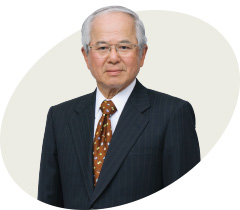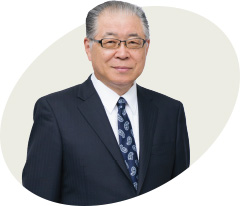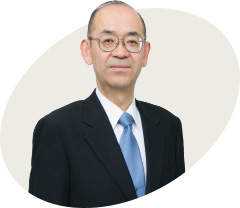
For several years now you’ve been involved in the management of AUTOBACS SEVEN. Compared to when you first joined the Board of Directors, do you think there have been any changes in the way the Board operates or discussions that take place in board meetings?
During the first 2-3 years after I was appointed, I recall that in board meetings and Corporate Governance Committee meetings we discussed not only operational matters but also questions about how best to govern the company. We engaged in focused discussions of topics such as executive compensation and evaluation systems, and approaches for appointing directors and senior executives.
Lately, though, our discussions have become more wide-ranging, addressing topics like specific domestic or overseas strategies. I think what has happened is that the framework for the governance system has been built and that even outside directors are now able to concentrate on higher-level matters — such as strategy — that are of greater consequence to the company.
Considering the current state of corporate governance at Japanese companies, are there any areas of governance at this company that pose challenges or require further improvement?
The governance system at AUTOBACS SEVEN is already at a level that permits the coexistence of outside directors — expressing meaningful opinions from the perspective of investors and securities markets — and those whose views reflect intimate insider understanding of what it takes to operate the company.
If I were to mention any area for further improvement in governance, I think it would be diversity. For example, given that the number of female drivers is increasing, it might be advisable for the company to consider appointing women to upper management positions in the future.

Tatsuya Tamura
Director (Outside, Independent), Chairman, Corporate Governance Committee
Profile
| April 1961: | Joined the Bank of Japan |
|---|---|
| May 1986: | Representative – Europe, Bank of Japan |
| February 1992: | Executive Director, Bank of Japan |
| April 1996: | Chairman, A. T. Kearney, Inc. |
| June 1996: | Adviser to the Board, Foreign and Colonial Pacific Investment Fund |
| April 1999: | Secretary, Keizai Doyukai (Japan Association of Corporate Executives) |
| June 1999: | Outside Director, ORIX Corporation |
| June 2000: | Outside Director, Suruga Bank Ltd. |
| May 2002: | Representative Director and President, Global Management Institute Inc. (current position) Auditor, Japan Center for Economic Research (current position) |
| June 2002: | Outside Director, Japan Telecom Co., Ltd. |
|---|---|
| March 2003: | Chairman, Japan Corporate Governance Network (non-profit organization; current position) |
| June 2003: | Outside Director, SKY Perfect Communications Inc. |
| October 2004: | Outside Director, Kanebo Cosmetics Inc. |
| June 2006: | Outside Director, Sanden Corporation |
| June 2008: | Outside Director, AUTOBACS SEVEN Co., Ltd. (current position) |
| June 2009: | Outside Director, Nipponkoa Insurance Co., Ltd. |
| June 2010: | Outside Corporate Auditor, Shinsei Bank, Limited (current position) |
From your perspective as an outside director, what are the issues the company faces in implementing its 2014 Medium-Term Business Plan?
The 2014 Medium-Term Business Plan puts forth some ambitious strategies for increasing the Company’s corporate value through sustainable, stable growth. To achieve that goal, investment plans for increasing the profitability of existing businesses and nurturing new businesses have already been laid out, but properly implementing PDCA cycles for new investments and from the beginning to the end of projects is critical.
In other words, it is necessary to further elevate the operational quality of the AUTOBACS Group by, for example, properly identifying the risks of proactive business expansion, being of a mind to pursue commensurate returns on investment, and thoroughly managing risk.
What will be your role in addressing these issues?
I aim to draw on my experience as a director of a general trading company to help ensure that proper, reasonable decision making is possible particularly in the plan (P) and check (C) stages of the plan-do-check-act (PDCA) cycle. And in doing so, I plan to emphasize the perspective of an ordinary shareholder.

Noriaki Shimazaki
Director (Outside, Independent), Chairman, Corporate Governance Committee
Profile
| April 1969: | Joined SUMITOMO CORPORATION |
|---|---|
| June 1998: | Director of SUMITOMO CORPORATION |
| April 2002: | Representative Director, Managing Director of SUMITOMO CORPORATION |
| January 2003: | Member of Business Accounting Council of Financial Services Agency |
| April 2004: | Representative Director, Senior Managing Director of SUMITOMO CORPORATION |
| April 2005: | Representative Director, Executive Vice President of SUMITOMO CORPORATION |
| July 2008: | Chairman, Sub-committee on Accounting of Nippon Keidanren |
| January 2009: | Trustee of International Financial Reporting Standards Foundation (IFRS Foundation) |
| July 2009: | Special Adviser of SUMITOMO CORPORATION |
| January 2010: | Member of the Management Advisory Committee, BNP Paribas Securities (Japan) Limited (current position) |
| June 2011: | Trustee of Financial Accounting Standards Foundation |
|---|---|
| June 2011: | Outside Director, AUTOBACS SEVEN Co., Ltd. (current position) |
| June 2011: | Chair of Self-regulation Board & Public Governor of Japan Securities Dealers Association (current position) |
| September 2013: | Advisor, IFRS Foundation Asia-Oceania Office (current position) |
| September 2013: | Advisor, The Japanese Institute of Certified Public Accountants (current position) |
| March 2014: | Member of the Management Advisory Committee, SBI Holdings, Inc. (current position) |
As a company pursuing business related to cars, what kind of relationship should AUTOBACS SEVEN be building with society?
With efforts by many people over many years, the annual number of traffic fatalities has come down. Still, though, with over 4,000 people a year losing their lives in traffic accidents, traffic safety remains a major issue for society.
AUTOBACS is one of the most familiar brands for drivers in Japan. If the AUTOBACS Group, therefore, leads activities that translate into greater traffic safety, it will earn even greater trust from drivers, and ultimately increase its corporate value.
As a new outside director, what role do you think observers inside and outside the Company are expecting you to play?
I think I’m being expected to apply my experience in risk management and public safety at the National Police Agency and other places, and my experience in organizational management for risk management and public safety, to help manage risks, including those associated with antisocial forces, and oversee proper operational execution.
Of course, protecting the interests of ordinary shareholders, helping to increase corporate value, and contributing to the enhancement of corporate governance are also important roles.

Hatsuo Odamura
Director (Outside, Independent), Chairman, Corporate Governance Committee
Profile
| April 1972: | Joined the National Police Agency |
|---|---|
| April 1982: | First Secretary, Embassy of Japan in Thailand |
| August 1992: | Director General, Saga Prefectural Police Headquarters |
| April 1998: | Director General, Nagano Prefectural Police Headquarters |
| August 1999: | Director General, Hiroshima Prefectural Police Headquarters |
| September 2001: | Director General, Kinki Regional Police Bureau |
| April 2002: | Director, International Affairs Department, Commissioner-General’s Secretariat, National Police Agency |
| January 2004: | Director General, Imperial Guard Headquarters |
| January 2006: | Retired from the National Police Agency |
|---|---|
| February 2006: | Councilor, Japan Police Personnel Cooperative |
| June 2006: | Senior Director, Japan Urban Security Research Institute |
| December 2008: | Director General, Institute for Traffic Accident Research and Data Analysis |
| June 2011: | Outside Director, AUTOBACS SEVEN Co., Ltd. (current position) |